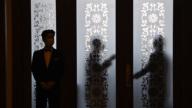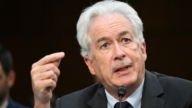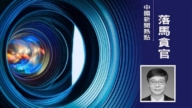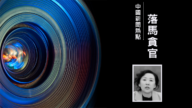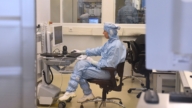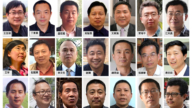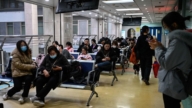【新唐人2013年05月03日訊】總部設在華盛頓的非政府組織「自由之家」,在5月1號發佈了《2013年全球新聞自由度報告》,批評中國政治改革遭遇挫折,加強了網管和監控。不過,學者指出,習近平早已選定了「毛式路線」。請看報導。
「自由之家」的報告說,中國新當選的領導人中,大多數都依靠走強硬路線建立政治生涯,這對期望實施有意義的政治改革是個打擊。
為顯示新領導人不太可能接受政治自由化的潮流,中共當局在過去兩個月裡,加強了互聯網的審查和監控。
這份報告評出:最缺乏政治權利和公民自由的國家和地區,其中有白俄羅斯、查德、中國、古巴、老撾和南奧塞梯;全球兩個最不自由地區,一是中共統治下的西藏,另一是摩洛哥控制的西沙哈拉。
美國國務院日前發佈的《2012年各國人權報告》指出,在中國獨裁政府下,鎮壓已成為常態,特別是維權人士的自由更大受打壓,而在去年11月的18大之前,新疆和西藏人權受壓的情況更見嚴重。而美國國際宗教自由委員會4月30號發佈的年度報告也說,中國的宗教自由在過去一年「顯著惡化」。
深圳雜文家朱建國指出,習近平的基本思路是走「毛式路線」,他的8條新規定就是毛澤東的那一套:用領袖的監督代替民主,代替法制,他在5月1號接見大慶、和大寨的代表,進一步說明瞭他要走毛的路。
深圳雜文作家朱建國:「他上來了目標很明確,實際上就是把胡錦濤暗暗終止的政治體制改革,正式明確的把它終止了。他根本不會搞甚麼政治體制改革,他的內部講話講前蘇聯的歷史教訓就已經說了,他絕不會走戈巴契夫那條路的,也不會走蔣經國的路。」
朱建國認為,習近平吸取了30年來中共改革派從來沒有得到好下場的教訓,沿著胡、溫的發展經濟加維穩的路走下去。
《德國之聲》指出,習、李新政上臺,新聞打壓依舊。香港媒體人、國際記者協會亞洲負責人胡麗雲表示:「原來中共當局過去所做的所有事情都是一場戲,他們從來也沒有改變,或去尊重新聞自由。」
北京憲政學者陳永苗:「習近平他已經找到法西斯主義的方向了,他也不會改革、他也不會不改革,他就按著原來毛澤東、鄧小平給他留下來的路徑,然後走向超越左右的,然後在改革已死的前提下,他就是不斷的維穩,然後不斷加大對底層民眾的資源掠奪的方向。」
北京憲政學者陳永苗認為,習近平只能是當一天和尚撞一天鐘,走一個左右平衡的法西斯主義之路。
另外,朱建國還指出,由於習近平受教育的局限性,他的眼光、視野非常短淺,他只看到毛澤東的成功之處。雖然他和他父親在文革中受了很多苦,但是他並沒有真正認識到那條路給國家、給百姓帶來的深重災難。
朱建國:「歷史真正的大潮流他沒有看清楚,這世界100年來翻天覆地的變化,近二十年來世界民主的新走向,他都沒有看到。他的眼睛只盯著錢,只盯著經濟上,他以為有了經濟,就證明這條路就走通了,但是他忘了當年的清朝的GDP是全世界第一,但是它依然會垮臺。」
時事評論員藍述:目前中國社會的兩種力量,底層民眾要求解決中共問題的這股力量和中共利益集團,它們之間的矛盾沒有任何的妥協可言。所以說中間道路走不通。現在的問題是,第五代的領導人他怎麼樣決定他自己的未來的問題。」
時事評論員藍述認為,第五代領導人是與利益集團一起徹底垮臺﹖還是與底層民眾合作﹖選擇擺在了他們面前。
採訪/陳漢 編輯/宋風 後製/蕭宇
Xin Jinping Takes “ Maoist Line”
On May 1, Washington-based NGO Freedom House
released its annual report, Freedom in the World 2013.
The report says that the Chinese Communist Party’s
new leaders bring little hope for meaningful political reform.
And that the CCP authorities have reinforced
internet censorship and surveillance.
Scholars indicate that Xi Jinping has in fact taken the
Maoist route in politics. Let’s see our news report.
The Freedom House report stated that
members of the new CCP leadership team “have generally
built their careers on hard-line policies”.
This is “a serious blow” that has hit on the hopes
for meaningful political reform.
The report indicates that “As if to emphasize
the point that the new leaders are unlikely to
usher in an era of political liberalization,
the government has taken steps in the last two months
to reinforce internet censorship and surveillance.”
The report listed the countries that have the fewest
political rights and civil liberties, which include:
Belarus, Chad, China, Cuba, Laos, and South Ossetia.
The two worst-rated territories in the survey are
Tibet, under the CCP’s rule and
the Western Sahara, which is controlled by Morocco.
The U.S. State Department recently released it’s
2012 Human Rights Report.
shows that suppression remains commonplace
under China’s authoritarian regime.
The report states that rights activists have suffered
many more crackdowns in 2013.
And that before the 18th CCP Congress
which was held in November 2012,
many more serious human rights violations
occurred in Xinjiang and Tibet.
On April 30, the U.S. International Religious Freedom
Commission released an annual report.
It says in the past year, religious freedom in China
has seen “significant deterioration”.
In the view of Zhu Jianguo, Shenzhen writer,
Xi Jinping has actually taken “the Maoist line”.
Xi’s eight rules are a replica of Mao’s thought,
which replaces democracy and rule by law
with the leader’s own supervision.
On May 1st in a meeting with representatives
from Daqing and Dazhai,
Xi stated explicitly that he would take Mao’s route.
Zhu Jianguo: “The new leader’s goal is very clear.
That is, to openly terminate moves toward
political reform that Hu Jintao had covertly suspended.
He won’t launch any political reform.
In an internal meeting, he explicitly said that
he wouldn’t follow either Gorbachev or Chiang Ching-kuo.”
Zhu Jianguo says that Xi Jinping has drawn a lesson
from the events of the past 30 years,
the CCP’s reformists have all come to a bad end.
Zhu analyses that Xi will continue on the path
explored by Hu Jintao and Wen Jiabao.
That is, economic development, escorted by
stability preservation.
Deutsche Welle comments that, under the
CCP’s new leaders, media control remains unchanged.
Woo Lai Wan, the chairperson of Hong Kong
Journalists Association, said that
“All the CCP authorities did in the past
was to stage a show.
They’ve never changed, nor have they respected
the freedom of the press.”
(Beijing constitutional scholar) Chen Yongmiao:
“Xi has found direction in fascism.
He won’t initiate reform, nor will he refuse to reform.
He will just move along the old path that was left
by Mao Zedong and Deng Xiaoping.
Then he will transcend the leftist and the rightist wings.
As reform is ended, he will continue to maintain
stability, and expand the plundering of the grassroots.”
Chen Yongmiao speculates that Xi will take
a careful and balanced path of fascism.
Zhu Jianguo adds that Xi Jinping, limited by his
education, has a shallow vision——
he is only focusing on Mao’s successes.
He and his father suffered a lot
during the Cultural Revolution.
However, he has never truly understood
how over and again in the past,
severe calamities have been brought to
the nation and the people by taking that path.
Zhu Jianguo: “He hasn’t yet discerned the historical trend.
He hasn’t seen either the dramatic changes that
have occurred in the past century nor has he seen
the new world’s trend towards democracy.
He has only focused on the economy, thinking that
economic growth is sufficient proof of success.
But he has forgotten that in the Qing Dynasty,
China’s GDP topped the world, yet the regime still collapsed.”
(Lan Shu): “Currently, there are two forces in China:
the grassroots force against the CCP, and the CCP interests group.
The conflict between the two sides has no solution.
So it’s pointless for the CCP to choose the middle way.
Now the question for the fifth generation of CCP leaders
is how they will choose a future for themselves.”
What choice will the fifth generation of CCP leaders make?
To collapse along with the CCP interests group,
or to cooperate with the grassroots?
Lan Shu indicates that they will each
have to make their own choices.


